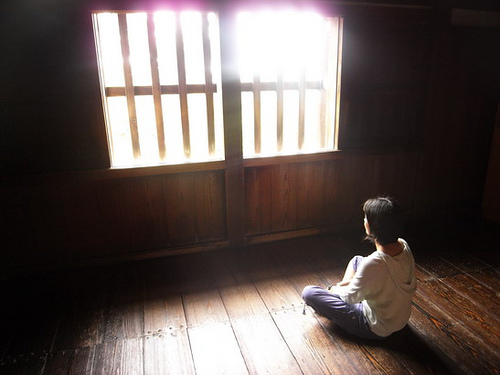
Just read one of the chapters on abnormal psychology in the IB psychology textbook. The sheer amount of unreliability in the field of mental illnesses is actually pretty scary. There are even arguments that mental illnesses (with the exception of things that actually show physical symptoms like Alzheimer's) do not exist. Treatment still goes on of course and it does help, but the extent in which abnormality is influenced by every other factor other than actually being abnormal is huge.
There is very little accuracy by which people are determined to have mental illnesses. While physical illnesses can be accurately determined with things like x-rays and other medical equipment, there is absolutely no way to determine the existence of a mental illness. The fact that mental illnesses which are prominent in one culture are found to be almost completely non-existence in another culture suggests that these mental illnesses are the product of the people rather than real diseases.
One particular thing stood out for me. Experiments were conducted where people tried to get themselves admitted to a mental hospital. They did not behave in any strange way, but simply told the doctors they were facing some symptoms which schizophrenic people faced. After admission, they continued their normal behavior, told the doctors their symptoms were gone, and attempted to get out. One patient took 52 days to get out because once he was in, he was unable to convince the staff that he was actually alright. Pacing the corridors due to boredom was marked as anxiety. Waiting for food in the cafeteria before it was ready was some oral problem. The worst one was that he and all the other patients took notes during the experiment, and none were questioned about it. Instead, nurses marked it down as 'patient engaged in writing behavior', which implies paranoia. The patient who took 52 days to get out told the staff that it was all an experiment, but they did not believe him.
The chapter talks about schema processing, confirmation bias and reporting bias. In many ways, in reminds me of judging people. Psychiatrists have to make a judgement when it comes to mental illnesses. They do their best, with plenty of guidelines, aware of the possible ways in which error can come about, and they fail. Who then are we to pass judgement on other people? When it comes to things like intentions, it is surely far more subtle than mental illnesses. How accurate are we then when we judge, especially considering we aren't exactly trained to do so? Talk of seeing it happen many times doesn't help either because of the above mentioned biases and schema processing.
Human beings are such complex creatures. How can we ever pretend to understand each other and to understand one another? If we can't do so, who are we to make sweeping assumptions on who they are and what is in their hearts?
Teach us to see as you see, to love as you love. Strip us of our pride, that we may not think of ourselves better but humbly acknowledge that we are all only human. Help us to make the effort to know someone and to seek out the true substance of their hearts.
---